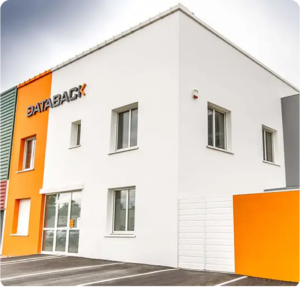Should you switch to SSDs? Databack answers…
The production and sale of SSD drives is tending to outstrip that of conventional magnetic hard drives, or HDDs. As SSD technologies take hold on the market, the question of how to replace your HDDs arises. Our Databack company sheds some light on the issue.
SSDs on the verge of supplanting HDDs
A study of the global supply of SSDs and HDDs, conducted by Statista in 2017, projected sales trends to 2021. According to their analysis, not only will the number of SSDs sold worldwide soon exceed that of HDDs, but sales of the latter will decline steadily.
Historic hard disk drive manufacturers such as Western Digital and Seagate did not wait for this trend reversal, and positioned themselves very early on in this buoyant market. New SSD technologies are therefore benefiting from massive investment: research and development, rapid upgrades, improved capacities…
SSDs are becoming increasingly popular, both technologically and commercially. So, you’re thinking of replacing your HDDs, but would like to find out more about the subject? Databack can provide you with the information you need to make the right decision.
If I switch to SSDs, will I gain in terms of performance?
Yes, of course! When it comes to incoming and outgoing data throughput, SSD technology is far more powerful than conventional magnetic disks. Your applications, software and operating systems will boot up much faster.
In order to benefit from this speed, however, you’ll need to consider upgrading your system’s hardware configuration. Installing an SSD drive in an older workstation may prove disappointing in terms of performance, as data transfer will be limited by computer components unsuited to this technology.
Will SSDs make me more reliable?
SSDs are much more resistant to shock and vibration, as they are not made up of moving parts like HDDs (storage platters, read/write head, etc.). They are also less sensitive to temperature variations.
Contrary to popular belief, however, SSDs are less durable than HDDs. Since data is stored using Flash memory, memory cells have a limited number of write cycles and are 10 times less durable than magnetic memory storage.
To compensate for this weakness, SSD manufacturers use data distribution algorithms to alternate the memory cells used. The fact remains, however, that since damage is irreparable, the more an SSD is used, the shorter its lifespan. Choosing the right type of memory and controller will therefore depend on how you intend to use it.
SSDs and data recovery
The data recovery on an SSD requires a different approach to that of magnetic hard disks. Recovery techniques involve accessing memory components via the SSD controller or directly on Flash memory cells. Data extraction is successful in the majority of scenarios.
But while there are only a few magnetic hard disk manufacturers in the world, the multitude of SSD manufacturers and the resulting number of standards and models complicates the task. The rapid and constant evolution of SSD technologies requires constant monitoring and innovation to find new recovery solutions. Nevertheless, Databack ‘s success rate remains identical for both SSD and magnetic media.
The increase in the number of SSD media in workstations is leading to a de facto increase in interventions. Our Databack laboratory has observed a 20% annual increase in the number of SSD drives requiring data recovery.
In conclusion…
Switching to SSD technology can be a wise decision. The data backups must be up to date and regularly checked, as failures can never be ruled out. It’s worth noting that new-generation laptops and ultra-portable computers generally include an SSD as standard for faster operating system execution… but conventional hard disks should still be preferred for use requiring storage.
19 February 2019









